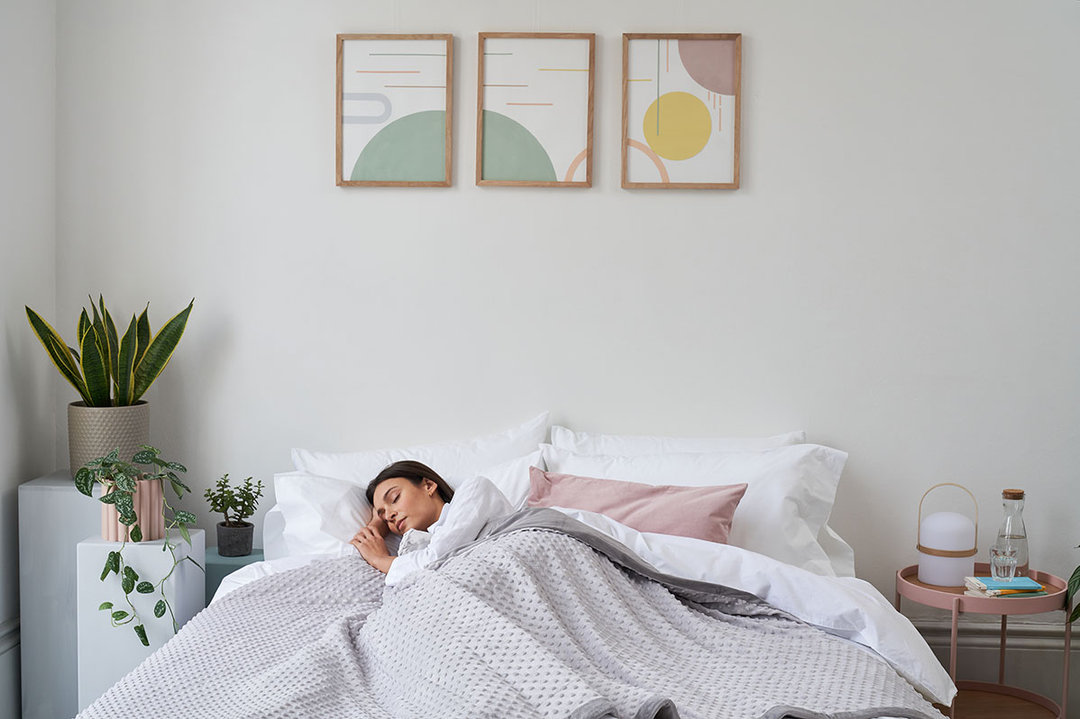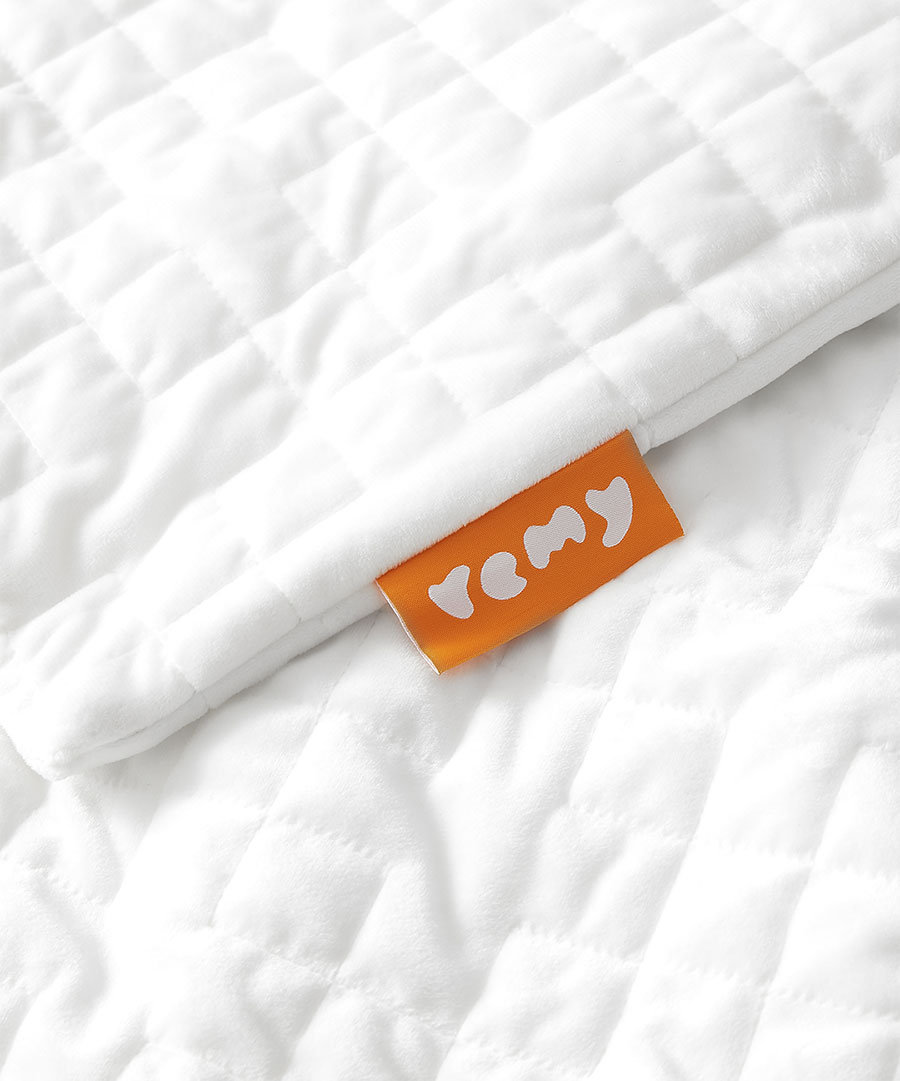Ask an expert: Do weighted blankets really work?
Weighted blankets are touted as a cure for sleep problems and a way to reduce anxiety. What do experts really think of them?

According to Healthline, studies show that weighted blankets reduce anxiety in 33% of users
EXPERT INTERVIEW
Weighted blankets are a tried-and-tested therapeutic tool, but it wasn’t until the advent of the now near-$70bn sleep industry that they emerged as a product everyday consumers could buy for their homes.
Today, weighted blankets from the likes of Bearaby, Gravity and others are promising to cure our chronic sleeplessness (according to The American Academy of Sleep Medicine, up to 65% of Americans suffer with some form of insomnia), so long as you can afford their $180-plus price tags. We asked Dr Katharina Lederle, a sleep therapist and founder of Somnia, how these hefty blankets work, and whether they’re suitable for all sleepers.
What’s the idea behind weighted blankets?
When someone experiences insomnia, there’s often, although not always, anxiety there. Physiologically speaking, this anxious tension creates an arousal. Weighted blankets can provide a calming, de-arousing effect – people call it cocooning – which works through the sense of touch. Like when a mum picks up her crying baby and that will calm the child down – it’s the same for adults.
That’s the theory. But do they work in practice?
I’m sceptical of anything presented as a one-size-fits-all approach … [and] I’d be wary about anticipating an outcome, because if it doesn’t happen, negative emotions like anger and frustration will drive further arousal in the body. That’s exactly what we don’t want.
I would approach a weighted blanket as [a tool] that helps you to calm and relax. Snuggling up in bed is certainly a nice thing; falling asleep is a nice byproduct.

Can you simulate the experience without buying a weighted blanket?
Absolutely. My partner is a sensitive sleeper. When we put an extra layer on [the bed] in the winter, he sleeps better. He says it’s about warmth, but I wonder if it’s also because of the weight. The extra blanket we use is quite heavy.
If you’re going to try a weighted blanket, what should you look for?
It should be at least 10% of your body weight, and [you should find out] what material it’s made of. You want heaviness but you don’t want to induce sweating, because that will disrupt your sleep again.
Why are we seeing so many sleep products on the market right now?
Well, we’ve done exercise and nutrition, so we needed to focus on something else! Sleep has been largely overlooked, and the world is catching up with this knowledge that sleep is important. But you know, Aristotle spoke about it, and Shakespeare loved sleep. Then Edison invented the lightbulb and [the attitude changed to] “sleep is for wimps”.
When we’re done with sleep health, we’ll probably move on to the body clock, our internal timing system. Casper already has its Glow light for the evening.
What sleep products are you most interested in trying?
I’d love to try the Oura ring, and I’ve currently got a light product I’m testing, the Bedtime Bulb. It doesn’t make me fall asleep faster, but there is a calmness that the light emits.